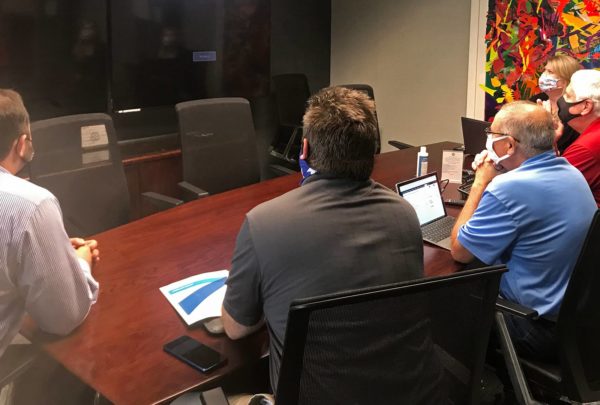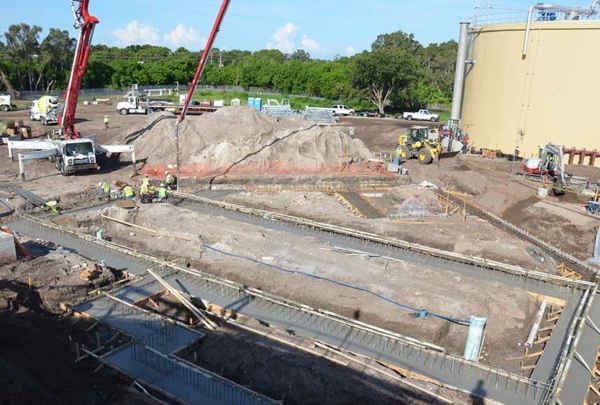Successful organizations are often admired for aggressively pursuing cost efficiency. These organizations prioritize cost reduction through strong procurement and purchasing groups and leverage their bargaining power to drive down prices for tangible goods such as raw materials, equipment, and consumables. Thin margins and deep competition in many sectors amplify the need for this mindset because it translates to stronger financial performance.
However, when executing capital projects and engaging knowledge-based service providers like engineers and architects, a singular focus on cost can often be detrimental and result in poor outcomes for a client organization. In extreme cases, this approach can undermine a client’s big-picture objectives and negatively impact critical business relationships.
Capital projects are complex endeavors involving multiple parties, such as stakeholders, designers, contractors, consultants and jurisdictional governments. These complex business relationships require agility and flexibility to manage; each organization will have its own unique recipe for success. Unlike purchasing a tangible object, which may be the same regardless of the location, organization or method of use, procurement of professional services must be tailored to the unique needs of their circumstances. Project managers frequently cite the concept of the triple constraints, where quality, cost, and schedule exist in some form of conflict and that prioritization of one constraint adversely impacts the others. A project with high quality standards that is fast-tracked is likely to be expensive. A project with a tight budget and schedule will likely experience design shortcuts and diminished quality.
Those capital projects with engineering and design elements necessitate a nuanced understanding of the client’s systems and operations to develop customized solutions. Procurement-driven organizations, by nature, prioritize cost savings in project execution, thus resulting in either a constraint in project schedule or project quality. This aggressive focus on cost forces providers to make difficult decisions, frequently to the detriment of the project outcome. A faster schedule and rushed design process may keep fees low but reduce the opportunity to innovate and explore alternatives. A consultant may utilize an inexpensive one-size-fits-all solution to keep their costs down and cause the client to miss out on a customized approach better suited to their needs.
In any scenario, indiscriminately slashing prices in the context of service providers results in fewer available hours by critical knowledge workers or limits the number of hours the more expensive (experienced) individuals can contribute. The professional relationship may risk taking on a transactional, or even adversarial, dynamic rather than that of a productive partnership. The proliferation of organizations abusing competitive bidding to price-check, complicated sourcing management software platforms and third-party purchasing teams erode relationships between clients and providers. While many companies have used these elements to streamline their procurement processes of tangible goods and achieve better overall value, that benefit has not translated to purchasing services.
On the contrary, organizations with a quality-first mindset prioritize excellence as the primary driver in their operations. These clients understand the value of expertise and innovation and are willing to invest in premium services to achieve superior outcomes, aware that it may not always be at the lowest price point. A quality-first approach fosters a conducive environment for innovation, allowing service providers the time and resources necessary to develop meaningful solutions. Projects are more likely to be executed precisely and deliver the client’s needs and vision. The technical project teams can focus on the project’s purpose and not its price, typically resulting in a more open and collaborative project culture. Of course, a singular focus on quality is not without challenges. Those quality-driven organizations are likely to find their projects in conflict with the realities of fixed budgets or set timelines, leading to potential adversarial dynamics when the endless pursuit of perfection hobbles the timely delivery of good.
The reality is that there are only a small number of organizations where the focus is exclusively on cost or exclusively on quality; the vast majority operate on the awareness that different initiatives may require a different weighting of importance between those mindsets. When it comes to successfully executing knowledge-based projects and procuring those servicers, both parties are well-served to consider the intrinsic value of quality and advocate for fair pricing models that reflect the true cost of expertise and innovation.
It is possible to create a quality-driven culture that co-exists with a cost-driven one; the key to success is nurturing true partnerships and moving away from transactional dynamics. Eliminating the binary mindset of cost or quality and instead fostering open communication and flexible approaches to deliver the greatest value to the client based on each situation's needs and critical requirements.
 About the author: Michael Asher is Director of Operations for Haskell’s Life Sciences Division. He is a credentialed Project Management Professional (PMP) from the Project Management Institute (PMI) and a Certified Project Manager (CPM) from the Project Management Leadership Group (PMLG). He holds a Bachelor of Science in Chemical Engineering from Washington University in St. Louis.
About the author: Michael Asher is Director of Operations for Haskell’s Life Sciences Division. He is a credentialed Project Management Professional (PMP) from the Project Management Institute (PMI) and a Certified Project Manager (CPM) from the Project Management Leadership Group (PMLG). He holds a Bachelor of Science in Chemical Engineering from Washington University in St. Louis.

 About the author: Michael Asher is Director of Operations for Haskell’s Life Sciences Division. He is a credentialed Project Management Professional (PMP) from the Project Management Institute (PMI) and a Certified Project Manager (CPM) from the Project Management Leadership Group (PMLG). He holds a Bachelor of Science in Chemical Engineering from Washington University in St. Louis.
About the author: Michael Asher is Director of Operations for Haskell’s Life Sciences Division. He is a credentialed Project Management Professional (PMP) from the Project Management Institute (PMI) and a Certified Project Manager (CPM) from the Project Management Leadership Group (PMLG). He holds a Bachelor of Science in Chemical Engineering from Washington University in St. Louis.







